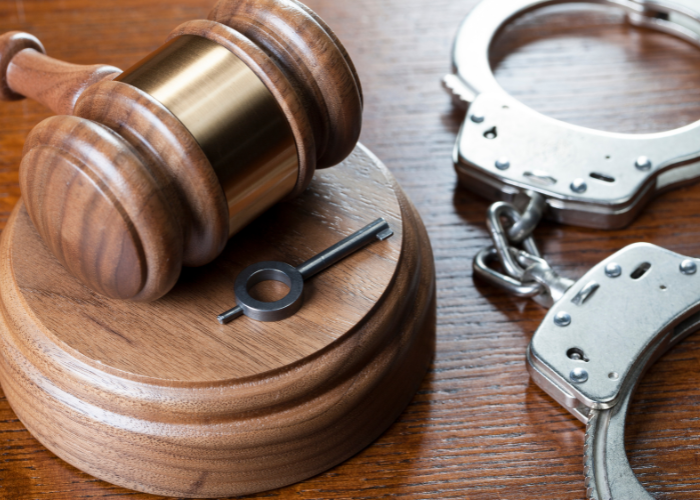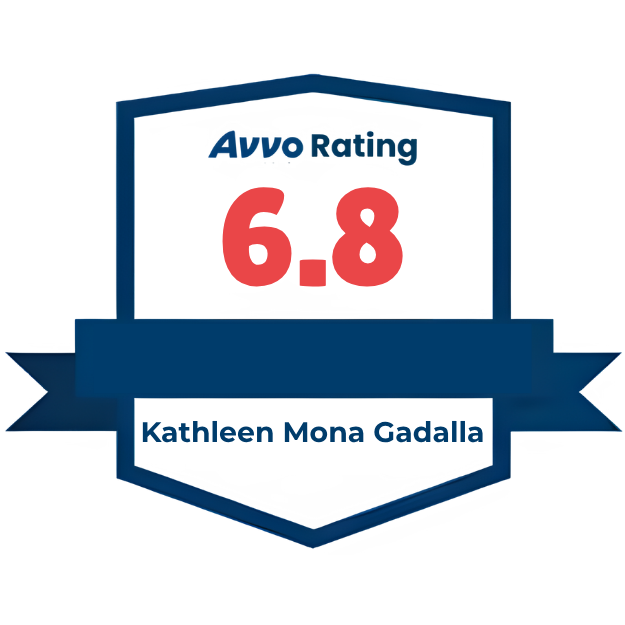Have You Been Arrested, Charged, Or Indicted In Harrisburg, Pennsylvania?
When your freedom and liberty are in jeopardy, you need an experienced Harrisburg criminal defense lawyer to protect your rights. When you are facing criminal charges there is a great deal on the line:
- Your freedom
- Your finances
- Your employment
- Your home
- Your mental health
- Your family’s well-being

Navigating the complex legal system alone can lead to negative consequences, including a serious criminal conviction. A skilled criminal defense lawyer provides vital guidance, ensuring you make informed decisions throughout the entire process.
Legal representation is essential from the moment the police slap on the cuffs and the charges are made. This is where Grace Legal comes in. Grace is a law firm with criminal defense lawyers who know how to best represent individuals with charges such as:
- Drug Offenses
- Drunk Driving (DUI)
- Aggravated Assault
- Violent Crime
- Harassment
- Theft
- Disorderly Conduct
- Gun Charges
- Kidnapping
- Identity Theft
- Property Crimes
- Juvenile Crimes
- Sex Crimes
- PFA Defense
- White Collar Crimes
- Burglary
- Cybercrimes
- Arson
- Strangulation
Grace Legal is the premier criminal defense law office handling cases in state and federal courts in Harrisburg, PA, Dauphin County, Middle District federal courts, and all of Central Pennsylvania. Our attorneys at Grace Legal have defended many clients against charges ranging from a misdemeanor charge like simple drunk driving (DUI) to severe accusations such as drug trafficking. With attorneys who include a former prosecutor, we have an in-depth knowledge of the prosecution’s case and know precisely how to build an effective defense strategy tailored to your unique situation.
What is Criminal Defense Law?
The practice area of criminal law is a complex and difficult field. It requires knowledge of the law, an understanding of the criminal justice system, and a commitment to protecting the rights of the accused. The best defense lawyers are those who are well-versed in the law, have a deep understanding of the criminal justice system, and are committed to protecting the Constitutional rights of their clients.
There are both state and federal crimes, and the penalties for each can be very different. For example, a state crime may be punishable by a fine, while a federal crime may carry a prison sentence. Criminal defense lawyers are those who understand the difference between these two types of crimes and can help their clients navigate the complexities of the law.
Rules of Evidence
Defense lawyers also need to be familiar with the rules of evidence. Evidence is used to prove or disprove a defendant’s guilt or innocence. It can be anything from eyewitness testimony to DNA evidence. Criminal defense attorneys know how to use evidence to their advantage and can help their clients present a strong case in court.
Finally, a criminal defense lawyer needs to be able to work well with other members of the legal community involved in the process. This includes state troopers, prosecutors, investigators, court clerks, and even the judge. The best criminal defense lawyers are those who can build a strong rapport with all the players and can get everyone on the same page to resolve the matter.
Unlike some other lawyers, Grace Legal attorneys approach each case with unwavering determination to defend your rights and achieve the best possible results. We advocate fiercely for our clients’ best interests, working tirelessly to secure a favorable outcome, whether that means a not guilty verdict, reduced charges, or minimized sentencing.
What Should I Do If I Am Arrested or Charged With A Crime?
If you are charged with a crime, it is important to consult with an experienced criminal lawyer as soon as possible. Before that happens and until you have legal representation, remember you have a CONSTITUTIONAL RIGHT TO REMAIN SILENT. This is a precious right that protects you and your freedom. All you have to do if questioned is ask for an attorney.
Criminal Defense Lawyers Defend Your Case
Your criminal defense attorney will be able to review the evidence against you, help determine what defenses may be available to you, and advise you of your legal options. Additionally, an attorney can move your case through the complex legal process and ensure that your rights are protected.
If you are facing criminal charges, the legal counsel at Grace Legal Offices has the experience to handle any state or federal criminal charge. They can best serve clients due to their years of experience as public defenders. They know the system, the courts, the prosecutors, and even the judges. To achieve the best possible outcome, it is essential to retain a criminal defense lawyer who can put you on the right track.
What Defenses Do I Have Against Criminal Charges?
Some of the most common defenses to criminal charges include:
- Innocence
- Violation of Constitutional Rights
- Self Defense
- Alibi
- Insanity
- Mistake of Fact
- Entrapment
- Statute of Limitations
Depending on the facts of your case, there may be other defenses your defense attorney can raise on your behalf. The best chance for a successful outcome to your case is to have an attorney well-versed in all aspects of criminal law. Once you are accused of a crime, the prosecutor will do everything within their power to prove their case and seek the highest form of punishment available. That is their job. The job of YOUR criminal defense attorney is to protect your rights. In some cases, charges can be dismissed, while in others, the charges can be reduced. In the event your case goes to trial, it is essential to have a seasoned attorney by your side and in your corner.
What Happens If My Case Goes To Trial?
In the event your criminal case goes to trial, your defense attorney will advise you on how the matter will proceed. If you have been released on bail, you will be able to discuss the legal matter and strategize with counsel in person in their office or even at your home. If you are incarcerated pending a trial, your attorney will meet with you where you are incarcerated to privately discuss the case.
Witnesses
The matters to discuss before going to trial are who the witnesses will be for the prosecutor and how their testimony can be challenged – this is called impeachment. Is the witness not telling the truth? Do they have a bias against you? Are they unreliable, such as having a track record of not being truthful? Your lawyers will also discuss whether your case is one where it would be in your interest to testify. Remember, you have the Fifth Amendment Constitutional right to remain silent and not provide testimony against yourself. The burden to prove your guilt is on the prosecutor, and they must prove your guilt “beyond a reasonable doubt.”
You DO NOT HAVE TO PROVE YOUR INNOCENCE.
Jurors
A criminal case begins with selecting jurors. In most cases, with some exceptions, there will be 12 jurors selected. The jurors will be questioned by the lawyers in a process called Voir Dire (jury selection). During Voir Dire, attorneys will take turns asking the jury panel questions. During the questioning, jurors may be excused from the panel if both sides agree that a juror may not be a good fit for the trial, whether for biases, hardships, or other reasons. After Voir Dire is completed, each side takes turns removing jurors from the panel until they reach the desired number. The remaining jurors will be sworn in and go on to serve as the jurors for the remainder of the trial.
Testimony and Evidence
The trial commences with opening arguments to the jury given by both sides. This sets the stage for what is going to happen, the testimony the jury will hear, and the evidence they will see. Each side, of course, presents what they feel is the strongest case.
The prosecutor begins by proving the case against you with witness testimony and the submission of evidence. Witnesses can be cross-examined by your attorney to demonstrate the weakness or falsity of their testimony.
Once the prosecution rests its case, it is time to put on the defense. The defense can call witnesses who support your case and defenses. After the defense rests, the prosecution will be able to put on a rebuttal case. Then each side rests. After each side rests, there are closing statements to the jury. After that, the judge instructs the jury and sends them to deliberate.
Acquittal vs. Conviction
If the jury finds you not guilty (acquitted), then the case is over, and you are free. If you are convicted on some or all counts (guilty), the judge will set a date for sentencing and determine if you must be immediately remanded to jail or prison time or can remain free pending appeal.
Sentencing
Once you are convicted of a crime or plead guilty to a crime, the trial judge must sentence you. The trial judge has broad discretion when it comes to sentencing and has sentencing alternatives available. For instance, the judge may order you to serve probation, electronic home monitoring (house arrest), jail time, and/or pay fines. A judge may order you to perform community service, stay away from the victim, pay restitution to the victim, or enroll in a drug and alcohol treatment program.
Some crimes carry a mandatory sentence established by law that the court must follow. For example, the mandatory minimum sentencing range for selling drugs in a school zone is 2 to 4 years. If the offender is convicted, and the District Attorney’s office enforces the mandatory sentence, the judge may not give the offender any less than 2 years’ jail time.
Appeals
If convicted, an appeals team will advise you of post-conviction remedies.
How Do I Find A Criminal Defense Lawyer?
If you are reading this, you have taken the first step to retain an experienced defense attorney to represent you in court. The Grace Legal team can be contacted through this page, and once you retain them, you can sit back and watch them work for you. From this point on, only your Grace attorney speaks for you. You are under no obligation to talk to anyone – not the police, investigators, or prosecutors. You have THE RIGHT TO REMAIN SILENT, and until you have retained a lawyer, that’s what you should do.
Contact Grace Legal Offices today to request a consultation for your felony, misdemeanor, or federal charges.







